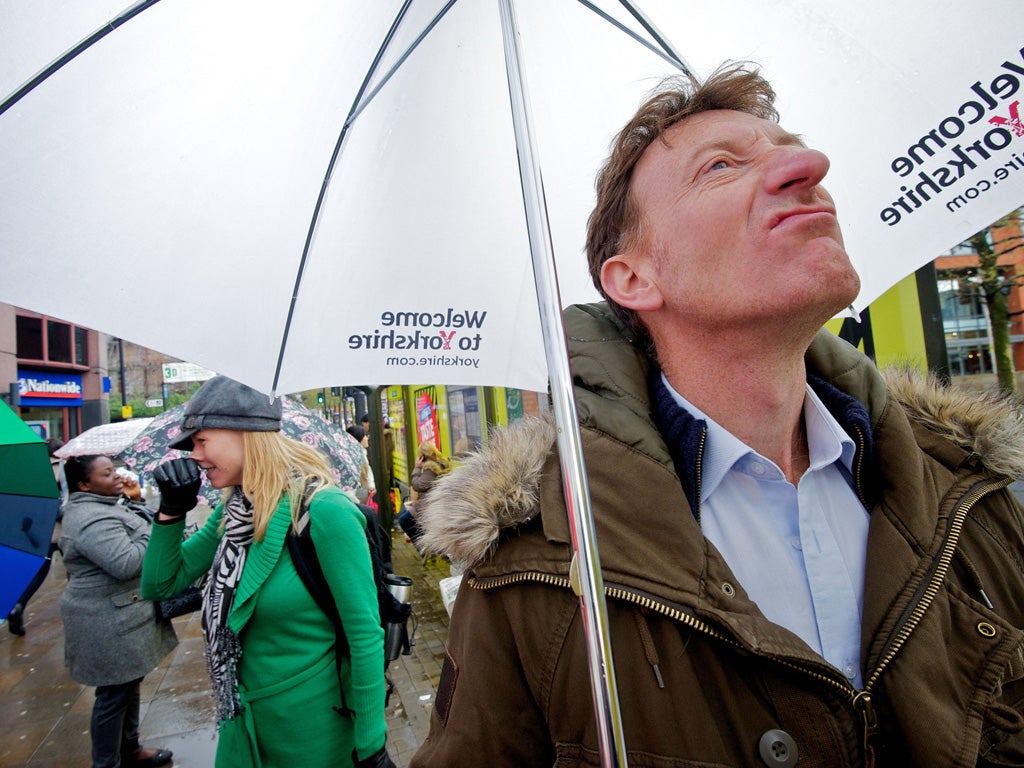Manchester: Scents & the city
Are you tired of sightseeing? Then why not try a smell tour instead. Jonathan Brown follows his nose around the streets of Manchester

It is with a sense of Proustian anticipation that we descend the steps off Manchester's Oxford Street into the dank basin of the Bridgewater Canal. Not for us the sweet aroma of dipped madeleines to trip off memories of days past – rather the stench of stale urine from the night before giving way to the waft of cold, rubbish-filled water tinged with notes of spilled lager.
Click HERE to view 'The great smells of Manchester: A visitor's guide' graphic
We are on a smell walk, and our guide for the day is Dr Victoria Henshaw, the UK's leading expert on the interplay of odours and the environment who has led similar strolls all over the world.
On a rainy Friday morning, she is burrowing into Manchester's nooks and crannies with a group curious to experience the city from a new sensory perspective. As she leads us up a dingy back alley to sample the extraction fans belching grease-filled air from the hot kitchens of Chinatown, she says few people are aware of just how profoundly they are affected by smell.
"Some people genuinely think we would be better off without it. It is often associated with bad things – things that stink," she said. "As a society we place great emphasis on the way things look but we often deny we are animals and that the sense of smell gives us a lot of life-or-death information."
"We can literally sniff out danger – a wild animal that might threaten us – or smell protection and safety. If we have eaten something that has made us sick we need to be able to recognise it again quickly."
So powerful is the interplay between the sense of smell, memory and experience that designers, architects and tourism chiefs are now beginning to scent the potential power of aromas to transform the way we live and travel.
In Grasse in the South of France, for instance, a thriving tourist industry has grown up based on the region's manufacture of perfume.
Marketers are experimenting with ways to sell holidays by transplanting unique smells from a destination to entice travellers to return there just as they do with coffee and bread.
Meanwhile, cities such as Glasgow and Edinburgh are exploring the potential for art and history trails in which people are guided as much by the nose as the eye.
Alongside the malodorous canalside, a reminder of Thursday night's revelries, Manchester was yesterday giving off a general smell of damp pavements alongside a perma-fug of cigarettes and the olfactory lure of coffee chains.
As Dr Henshaw explained, much of what made the place unique has gradually begun to disappear. Many locals still miss the old industrial smells and those of the individual food shops which have fallen victim to the sanitised aroma-scape of the supermarkets and shopping malls. "Just as people complain about clone towns which all look the same and have the same shops, so we are creating places which all smell the same," she said.
Modern building materials and vehicle pollution mask smells, while environmental regulations require manufactured odours to be pumped into the air safely away from our noses.
The rich, of course, did not wait for such changes – they began to move away from the inner city in the 18th century. Cities in the west coast of Britain consciously put their affluent neighbourhoods up wind, leaving poorer communities to the east ends of places like Glasgow and Carlisle. But that is changing, as inner cities are redeveloped – and those in charge begin to think about scents as well as sights.
Kerri Farnsworth, a project director who has worked on the regeneration of Liverpool, Budapest and Riga centres, said: "The whole key to getting people to live in a city is to ensure the experience they have there is positive."
Back on the Manchester smell walk, several members of the group say that their nasal workout will have a lasting impact on the attention they pay to odour. "I have now spent an hour and a half thinking about smell which is the longest I think I have ever thought about it," said Alex Thorp, an educator with Manchester Art Gallery.
Morag Rose's nose, meanwhile, is already pointing elsewhere: "My favourite smell was my Nan but I also like the smell of a Ginger Marble beer in a really nice pub because that means I am going to have a nice night out."
Background: The science of smell
Although writers and chefs have long known that smells can evoke powerful feelings and memories, it was not until 1991 that science began to explain why humans are able to recognise 10,000 odours so intensely. US researchers Richard Axel and Linda Buck discovered a family of 1,000 genes, each giving rise to an equivalent number of olfactory receptor types in the nose.
Each highly specialised receptor can detect only a limited number of odours, which it translates into nerve processes that are relayed directly to the brain, enabling us to experience a smell. Axel and Buck were awarded the Nobel Prize for their discovery in 2004.
Subscribe to Independent Premium to bookmark this article
Want to bookmark your favourite articles and stories to read or reference later? Start your Independent Premium subscription today.

Join our commenting forum
Join thought-provoking conversations, follow other Independent readers and see their replies